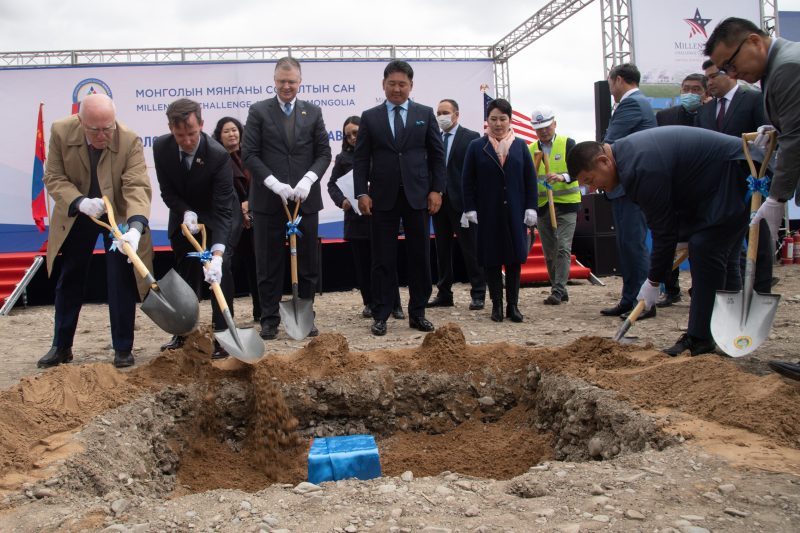
"I am proud to be here in this beautiful city with President Khurelsukh to advance critical water infrastructure and affirm the strong partnership between the United States and Mongolia,” said Alford. “Ulaanbaatar is one of the world's most water-scarce cities, and it is extremely vulnerable to the impacts of climate change. This plant will contribute to providing a safe and sustainable supply of water to households and businesses, while also strengthening the capital city’s climate resilience and water security."
In less than three decades, the population of Ulaanbaatar has nearly tripled in size, increasing the demand on the city’s water supply. The city now faces imminent water shortages that pose a significant threat to its residents and Mongolia’s economy. The advanced water recycling plant — which is scheduled to begin construction this month — is an example of MCC’s commitment to countering climate change. The water recycling plant will help enhance Mongolia’s climate resilience and ensure a safe and sustainable supply of water to households and businesses in the capital city by freeing up 15 million cubic meters of fresh water per year for the people of Ulaanbaatar.
“[E]verybody knows that water is a source for all living beings, and its significance is vital for human life,” said Mongolian President Khurelsukh at the groundbreaking celebration. “By recycling water, Mongolians will now help Mother Nature in the natural rebirth of water. We are becoming eco-friendlier and more responsible.”
In 2018, the Government of Mongolia and MCC signed a compact agreement to invest $462 million in total in the country’s water sector — $350 million from MCC and $111.8 million from the Mongolian government, one of the largest partner country contributions in the history of MCC. A significant portion of the Water Recycling Plant funding is made possible by the Government of Mongolia – a critical investment that will significantly enhance the impact of the overall compact.
The compact will increase the available water supply in Ulaanbaatar by 80 percent through three integrated components:
- The construction of both new groundwater wells downstream of Ulaanbaatar and a state-of-the-art advanced water purification plant to remove contaminants and ensure that drinking water is ready for widespread municipal use;
- The construction of a new wastewater recycling plant and pipelines to provide high-quality recycled water that can be used by industry; and,
- Strengthening the Mongolian government’s capacity through technical assistance and the implementation of policy reforms that improve the long-term sustainability of Ulaanbaatar’s water supply.
###

